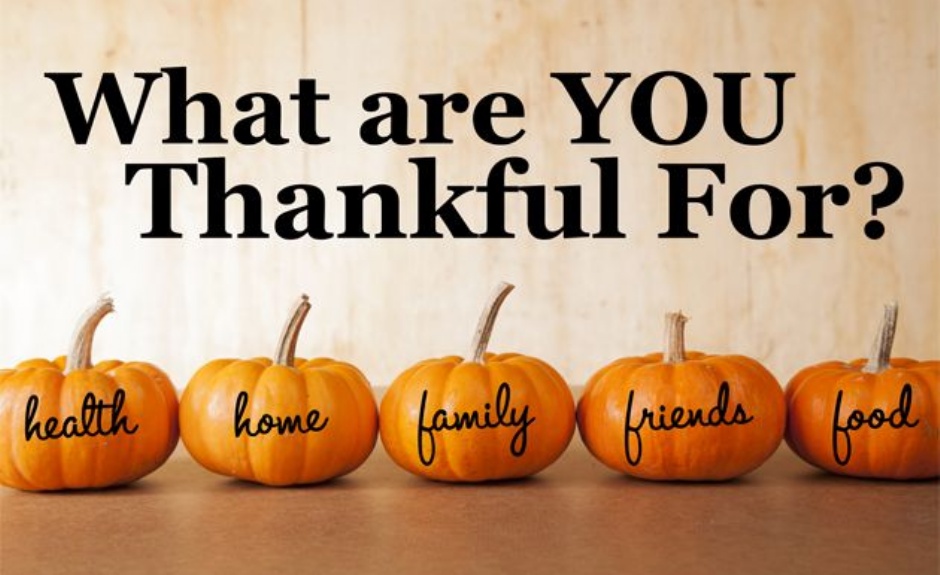Living with Thanksgiving

Thanksgiving, celebrated annually on the fourth Thursday in November in the United States, is a cherished time for families and friends to gather, share a sumptuous meal, and reflect on the blessings in their lives.
It is a holiday filled with warmth, connection, and the spirit of gratitude—a moment to pause and appreciate what we often take for granted. Rooted in both historical events and cultural practices, Thanksgiving has evolved into a tradition that underscores the profound importance of giving thanks, not just for what we have, but for the people, moments, and opportunities that enrich our lives.
The story of Thanksgiving begins with the early settlers of North America—specifically, the Pilgrims who arrived in 1620 aboard the Mayflower. These brave souls, seeking religious freedom, endured a gruelling and often unforgiving journey across the Atlantic. Their first winter was harsh, claiming the lives of many, leaving the survivors battered and weary. But amidst the hardships, the resilience of the Pilgrims was tested, and their fate was intertwined with that of the indigenous Wampanoag people.
The Wampanoag, who had lived on the land for centuries, shared their knowledge of agriculture, teaching the settlers essential survival skills, such as how to plant corn, squash, and beans—"the Three Sisters" that would become the cornerstone of their diet. This exchange of wisdom, patience, and resources led to a harvest in the fall of 1621 that was abundant enough to be celebrated. To mark this momentous occasion, the Pilgrims and the Wampanoag shared a feast that would last for three days, a gathering filled with roasted meats, vegetables, and berries—simple foods but symbols of shared effort, survival, and cooperation.
While this first Thanksgiving was far from the grandiose affair we imagine today, it was a powerful moment of connection and mutual respect, a testament to the strength that comes from collaboration across cultures. It laid the foundation for a tradition that would eventually become a national symbol of gratitude and unity.
The idea of a national Thanksgiving Day did not take shape until much later. In the mid-19th century, Sarah Josepha Hale, a determined writer and editor, campaigned tirelessly for the establishment of a nationwide day of thanks. Her efforts culminated in President Abraham Lincoln’s 1863 proclamation, which declared Thanksgiving a national holiday to be observed on the final Thursday of November. At the height of the Civil War, Lincoln sought to unite a divided nation, using Thanksgiving as a way to encourage healing and reconciliation.
From that moment, Thanksgiving became not just a harvest celebration, but an annual occasion to reflect on the blessings of life, to give thanks for the abundance of food and family, and to remember the importance of togetherness—values that are just as relevant today as they were over 400 years ago.
While Thanksgiving offers a designated day to express gratitude, the act of being thankful is not confined to a single holiday. Gratitude is a practice—a transformative force that can shape our lives for the better. Research has shown that those who cultivate a habit of gratitude experience a multitude of benefits, from enhanced mental health to stronger, more meaningful relationships. But why exactly is gratitude so powerful?
Gratitude acts as a balm for the soul, soothing the emotional wounds that often arise from stress, anxiety, and discontent. By focusing on the positives in our lives—however small—they begin to outweigh the negatives. Studies reveal that regularly practicing gratitude can lower levels of depression and anxiety, replace feelings of scarcity with those of abundance, and shift our mindset toward optimism. In the presence of gratitude, joy flourishes, and we become more attuned to the simple pleasures that might otherwise go unnoticed. It’s as if gratitude paints the world in brighter hues, inviting us to see life with greater appreciation and wonder.
Gratitude is a gift that we give to others, and in turn, it is a gift that strengthens the bonds between us. A heartfelt "thank you" can weave invisible threads of connection, creating a tapestry of trust, respect, and affection. Whether it’s a partner, a friend, or a colleague, showing appreciation makes others feel valued and seen. Small gestures—like acknowledging a loved one’s kindness or expressing gratitude for someone’s support—nurture a sense of mutual care, reinforcing relationships in ways that words alone cannot.
Gratitude also plays a critical role in enhancing our resilience during life’s inevitable challenges. In times of hardship, when the weight of the world seems unbearable, gratitude provides a lifeline—a reminder that even in the darkest moments, there are things to be thankful for. A warm memory, the comfort of a friend, the beauty of a sunset—these simple gifts can help us endure and persevere. Gratitude shifts our focus from what is lacking to what is still present, helping us to rise above adversity with a sense of hope and determination.
When we reflect on the things we are grateful for, we begin to see the deeper meaning in our lives. Gratitude reminds us that we are part of something greater than ourselves, that our actions have an impact, and that we are connected to a larger story. Whether it’s the love of family, the fulfilment of a career, or the joy of helping others, gratitude strengthens our sense of purpose. It invites us to live more intentionally, to honour the gifts we’ve been given, and to share those gifts with the world.
At its core, gratitude is a practice of mindfulness—being fully present in the moment and appreciating the here and now. When we take the time to reflect on what we are thankful for, we become more aware of the richness of our lives. Gratitude slows us down, helping us savour life’s fleeting moments and find beauty in the ordinary. It encourages us to tune out distractions and simply be, to notice the subtle joys that surround us, whether in the warmth of a hug, the aroma of a home-cooked meal, or the sound of laughter shared with friends.
Thanksgiving, both as a historical event and a modern-day celebration, serves as a poignant reminder of the power of gratitude. It encourages us to pause and reflect on the blessings in our lives—the people, the moments, the simple comforts—that often go unnoticed in the hustle and bustle of daily life.
Gratitude is not just for one day, but a practice that, when woven into the fabric of our lives, brings profound benefits: improved mental health, deeper relationships, greater resilience, a heightened sense of purpose, and a more mindful way of living. Even though we may not be gathering with friends and family to celebrate Thanksgiving here in the UK, let us remember that the true essence of the holiday lies not in the food we eat, but in the gratitude we share. It is this spirit of thankfulness that binds us together, nurtures our hearts, and fills our lives with meaning.
Craig Cuyler
Designated Safeguarding Lead/
Director of Wellbeing/Head of PSHEe








